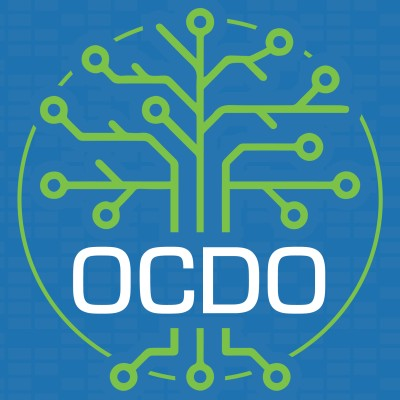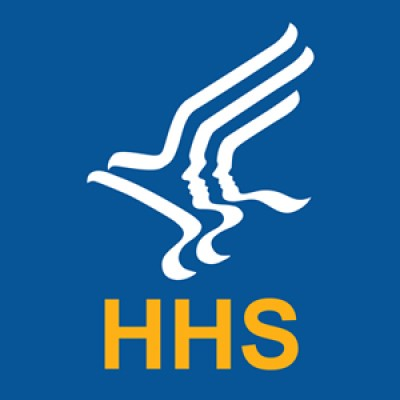Harvard Under Fire: The Race-Based Discrimination Investigation
April 29, 2025, 10:09 pm

Location: United States, District of Columbia, Washington
Employees: 201-500
Founded date: 2019
Total raised: $1.25M

Location: United States, District of Columbia, Washington
Employees: 10001+
Founded date: 1953
Total raised: $56.52M

Location: United States, Massachusetts, Cambridge
Employees: 10001+
Founded date: 1636
Total raised: $303.77K
Harvard University, a beacon of academic excellence, now finds itself in the crosshairs of a federal investigation. The Trump administration has launched a probe into allegations of race-based discrimination at the Harvard Law Review. This inquiry raises questions about meritocracy, diversity, and the future of academic freedom.
The investigation stems from claims that the Harvard Law Review, a prestigious legal journal, has prioritized the race of authors over the merit of their work. The U.S. Departments of Education and Health and Human Services are scrutinizing the journal's article selection process. They allege that it may violate Title VI of the Civil Rights Act of 1964, which prohibits discrimination based on race, color, or national origin in programs receiving federal funding.
This controversy is not an isolated incident. It unfolds against a backdrop of escalating tensions between Harvard and the Trump administration. The university is embroiled in a legal battle after the administration froze $2.3 billion in federal grants, citing concerns over antisemitism and the handling of pro-Palestinian protests on campus. Harvard has countered with a lawsuit, challenging the legality of the funding freeze.
The timing of the investigation is telling. It follows a report from a conservative news outlet that alleged a "pervasive pattern of racial discrimination" at the Harvard Law Review. This report claims that the journal's selection process favors authors from underrepresented groups, potentially at the expense of merit. Critics argue that this approach undermines the very principles of academic rigor and fairness.
The Trump administration's stance is clear. It views diversity, equity, and inclusion (DEI) programs as discriminatory against white individuals and men. The administration has demanded that Harvard dismantle these programs and screen international students for ideological biases. This push for ideological conformity has drawn ire from civil rights advocates, who argue that it threatens free speech and academic freedom.
Harvard's response has been measured. University representatives assert their commitment to compliance with federal laws and the investigation of any credible allegations. However, the Law Review operates independently, complicating the university's position. The journal's editors have not publicly commented on the investigation, leaving many questions unanswered.
The implications of this investigation are profound. If the allegations are substantiated, Harvard could face significant repercussions. The loss of federal funding would cripple vital research initiatives and impact the university's ability to attract top talent. The specter of losing tax-exempt status looms large, threatening the very foundation of Harvard's financial model.
Moreover, this investigation could set a precedent for other institutions. If the Trump administration succeeds in curtailing DEI initiatives at Harvard, similar programs at universities across the nation could be next. The battle lines are drawn, and the stakes are high.
Critics of the investigation argue that it is a politically motivated attack on a leading institution of higher learning. They contend that the Trump administration is using Harvard as a scapegoat to rally its base and undermine progressive values in education. This narrative resonates with many who view the investigation as an assault on academic freedom.
Supporters of the investigation, however, argue that it is a necessary step to ensure fairness in academia. They contend that prioritizing race in selection processes is a form of discrimination that undermines the meritocratic ideals that universities should uphold. This perspective highlights a growing divide in American society over issues of race, equity, and justice.
As the investigation unfolds, the nation watches closely. Harvard's reputation hangs in the balance, and the outcome could reverberate far beyond its ivy-covered walls. The university's commitment to diversity and inclusion will be tested against the backdrop of federal scrutiny and public opinion.
In the coming months, Harvard will need to navigate this turbulent landscape with care. The university must balance its commitment to diversity with the need to uphold academic standards. It faces a daunting challenge: to emerge from this crisis with its integrity intact while addressing the concerns raised by the investigation.
The Harvard Law Review, once a symbol of legal scholarship, now stands at a crossroads. Its future depends on how it responds to these allegations and whether it can reconcile its mission with the demands of federal oversight. The stakes are high, and the outcome remains uncertain.
In the end, this investigation is more than just a legal battle. It is a reflection of the broader societal struggle over race, equity, and the role of institutions in shaping our collective future. As Harvard grapples with these challenges, it must remember that the pursuit of knowledge and justice is a journey, not a destination. The road ahead may be fraught with obstacles, but it is a path that must be navigated with courage and conviction.
The investigation stems from claims that the Harvard Law Review, a prestigious legal journal, has prioritized the race of authors over the merit of their work. The U.S. Departments of Education and Health and Human Services are scrutinizing the journal's article selection process. They allege that it may violate Title VI of the Civil Rights Act of 1964, which prohibits discrimination based on race, color, or national origin in programs receiving federal funding.
This controversy is not an isolated incident. It unfolds against a backdrop of escalating tensions between Harvard and the Trump administration. The university is embroiled in a legal battle after the administration froze $2.3 billion in federal grants, citing concerns over antisemitism and the handling of pro-Palestinian protests on campus. Harvard has countered with a lawsuit, challenging the legality of the funding freeze.
The timing of the investigation is telling. It follows a report from a conservative news outlet that alleged a "pervasive pattern of racial discrimination" at the Harvard Law Review. This report claims that the journal's selection process favors authors from underrepresented groups, potentially at the expense of merit. Critics argue that this approach undermines the very principles of academic rigor and fairness.
The Trump administration's stance is clear. It views diversity, equity, and inclusion (DEI) programs as discriminatory against white individuals and men. The administration has demanded that Harvard dismantle these programs and screen international students for ideological biases. This push for ideological conformity has drawn ire from civil rights advocates, who argue that it threatens free speech and academic freedom.
Harvard's response has been measured. University representatives assert their commitment to compliance with federal laws and the investigation of any credible allegations. However, the Law Review operates independently, complicating the university's position. The journal's editors have not publicly commented on the investigation, leaving many questions unanswered.
The implications of this investigation are profound. If the allegations are substantiated, Harvard could face significant repercussions. The loss of federal funding would cripple vital research initiatives and impact the university's ability to attract top talent. The specter of losing tax-exempt status looms large, threatening the very foundation of Harvard's financial model.
Moreover, this investigation could set a precedent for other institutions. If the Trump administration succeeds in curtailing DEI initiatives at Harvard, similar programs at universities across the nation could be next. The battle lines are drawn, and the stakes are high.
Critics of the investigation argue that it is a politically motivated attack on a leading institution of higher learning. They contend that the Trump administration is using Harvard as a scapegoat to rally its base and undermine progressive values in education. This narrative resonates with many who view the investigation as an assault on academic freedom.
Supporters of the investigation, however, argue that it is a necessary step to ensure fairness in academia. They contend that prioritizing race in selection processes is a form of discrimination that undermines the meritocratic ideals that universities should uphold. This perspective highlights a growing divide in American society over issues of race, equity, and justice.
As the investigation unfolds, the nation watches closely. Harvard's reputation hangs in the balance, and the outcome could reverberate far beyond its ivy-covered walls. The university's commitment to diversity and inclusion will be tested against the backdrop of federal scrutiny and public opinion.
In the coming months, Harvard will need to navigate this turbulent landscape with care. The university must balance its commitment to diversity with the need to uphold academic standards. It faces a daunting challenge: to emerge from this crisis with its integrity intact while addressing the concerns raised by the investigation.
The Harvard Law Review, once a symbol of legal scholarship, now stands at a crossroads. Its future depends on how it responds to these allegations and whether it can reconcile its mission with the demands of federal oversight. The stakes are high, and the outcome remains uncertain.
In the end, this investigation is more than just a legal battle. It is a reflection of the broader societal struggle over race, equity, and the role of institutions in shaping our collective future. As Harvard grapples with these challenges, it must remember that the pursuit of knowledge and justice is a journey, not a destination. The road ahead may be fraught with obstacles, but it is a path that must be navigated with courage and conviction.